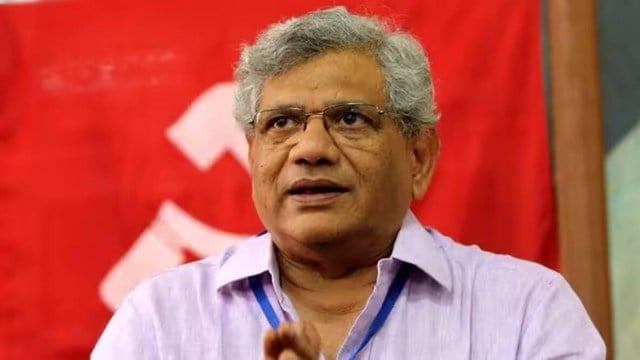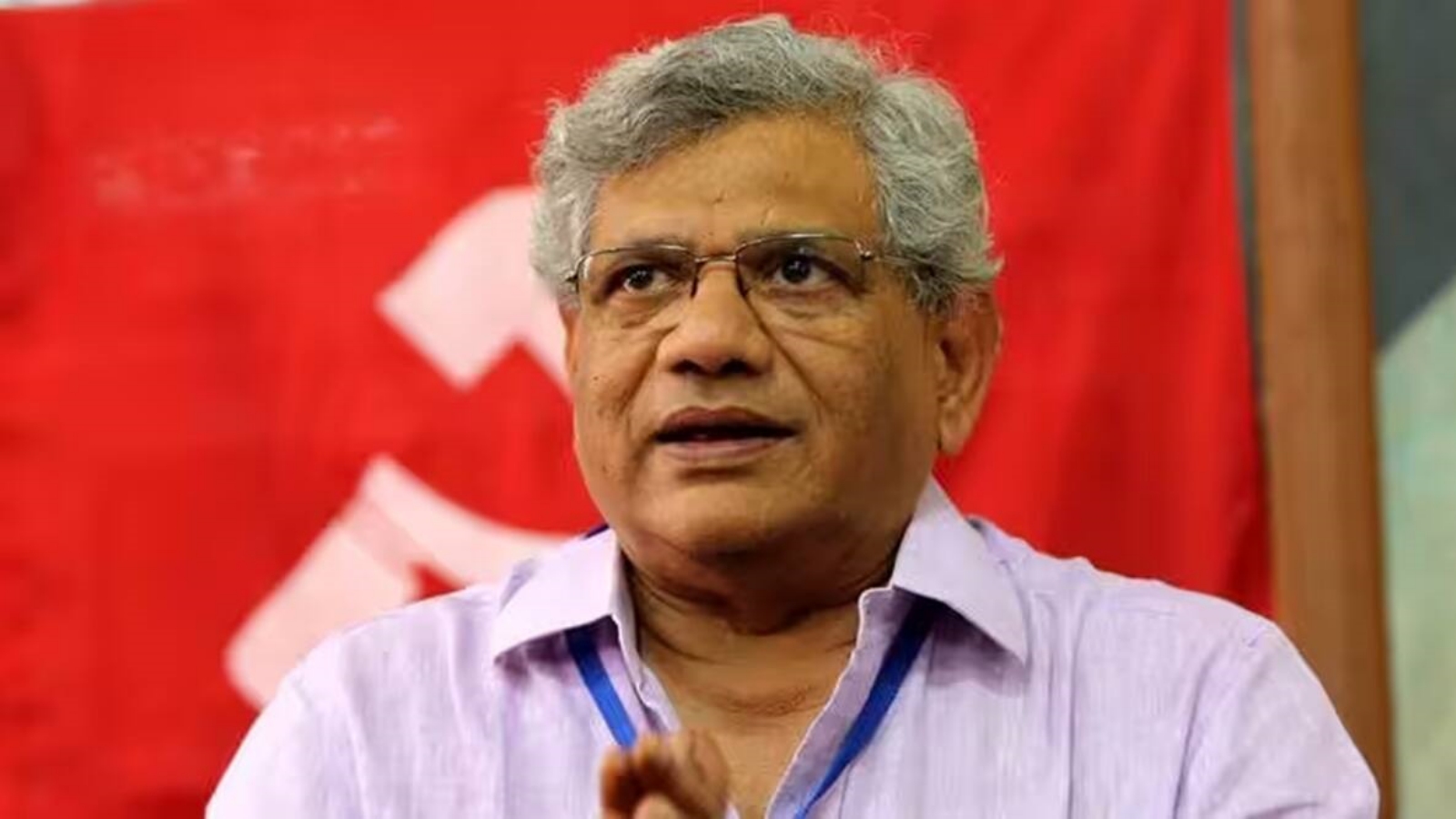
For a twenty-something relocating from Kerala’s Marxist heartland of Kannur to New Delhi in the late 1980s, there were many wonders to behold in the national capital. Sitaram Yechury, the firebrand SFI leader from JNU who had just made his way to the Central Committee of CPI(M), was one such wonder.
What began as a fanboy’s admiration led to a four-decade-long comradeship. During these years, I watched him graduate from a fiery student leader to a party ideologue to a parliamentary superstar and one of the architects of two of India’s prominent coalition governments. Four years ago, when this writer entered the Rajya Sabha as a CPI(M) nominee, Derek O’Brien of Trinamool Congress (TMC) walked up to me and said you may disagree with what I say but you will never be able to discount me. “Because, friend, I am now sitting in Sitaram Yechury’s chair,” Derek said, which was an indication of the high respect Sitaram enjoyed even in TMC, then a bitter rival of CPI(M) in Bengal.
Like many of the party brigade who landed in New Delhi from various parts of the country, I too ended up at the Vithal Bhai Patel House — or VP House as it is known — which was like a party commune then. My friendship with Sitaram was forged in that melting pot of cultures. We used to meet early in the mornings at the badminton court — Sitaram used to play badminton like he was playing lawn tennis. There were days when we ended up across the dinner table in some comrade’s room. Kerala food — especially the controversial components of it — emerged as a great bonding agent.
By the early 1990s, it was evident that it would be the duo of Sitaram and Prakash Karat who would carry forward the baton of EMS Namboodiripad, BT Ranadive, M Basavapunnaiah, Jyoti Basu and Harkishan Singh Surjeet. Eventually, they became a storied duo: Sitaram with his political and parliamentary skills and Prakash with his theoretical and organisational rigour.
Sitaram could hold forth for hours on caste or class, and effortlessly switch to deep discussions on history or economics. But more importantly, Sitaram could speak the common tongue. Communist leaders are sometimes blamed for their gravitas and what is known as the stiff upper lip. With his sense of humour and disarming smile, Sitaram was the antithesis of this. In fact, his deftness with languages — English, Hindi, Telugu, Bengali, Urdu, Tamil and even a bit of Malayalam — made many of us wary of his presence. You couldn’t be street-smart in any language because Sitaram would catch you.
Maybe it was these skills that made him popular, not only across the political spectrum but also across segments. He was acceptable to everyone, a skill that made his genius inevitable in formulating the preamble of the Common Minimum Programme of the 1996 United Front and 2004 UPA I government.
Sitaram had taken “secularism” as a defining principle of his politics from very early on, and Delhi’s secular circle — politicians, academics, journalists, artists — everyone coalesced around his leadership. Even before the RSS emerged as a ruling force in the Indian firmament, Sitaram managed to bring together all secular forces — from Kashmir to Kanyakumari, from Gandhinagar to Guwahati. He knew very early on the dangers of this “imposed singularity” and hence, took on RSS culturally not just politically. In fact, some of the top Congress leaders, in private conversations, complain to me that it is Sitaram’s influence that has rubbed off on Rahul Gandhi who often uses communist/socialist terminology in his speeches.
When he retired from Rajya Sabha, Ghulam Nabi Azad referred to Sitaram as a national treasure. He may be gone from this world, but that treasure called Sitaram remains with us, inspiring generations with his life and legacy.
The writer is a Rajya Sabha member of CPI(M)
© The Indian Express Pvt Ltd
First uploaded on: 13-09-2024 at 07:30 IST



